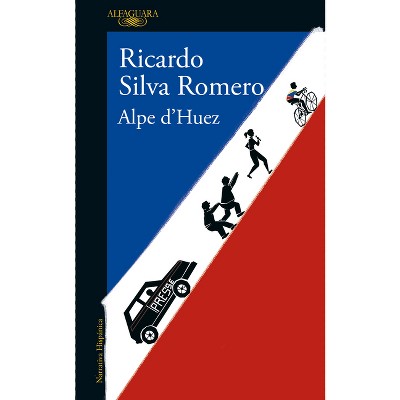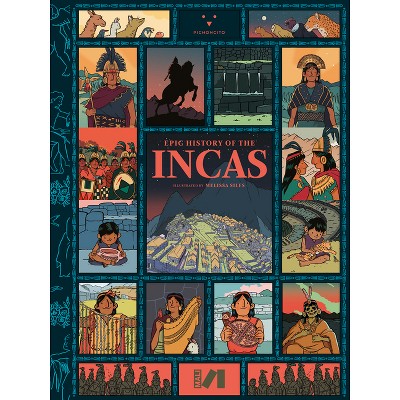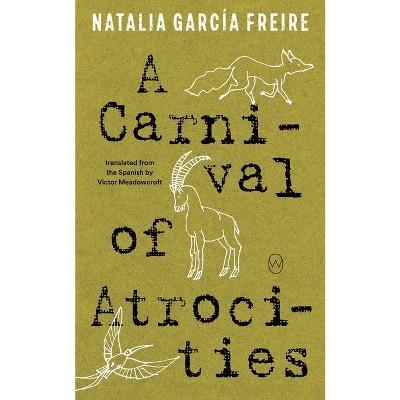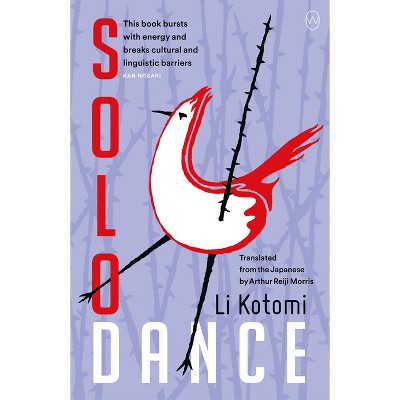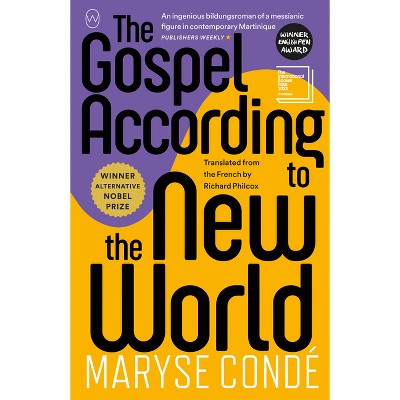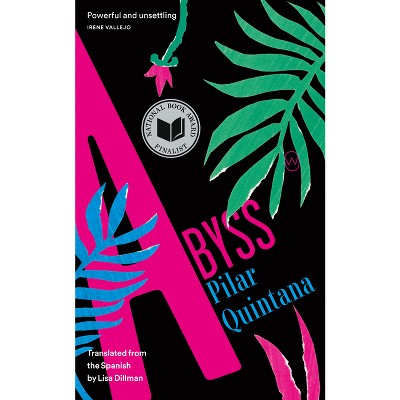Sponsored

Río Muerto - by Ricardo Silva Romero (Paperback)
In Stock
Sponsored
About this item
Highlights
- By one of Colombia's most renowned novelists and reminiscent of Chronicle of a Death Foretold by Gabriel Garcia Marquez, Ríiacute;o Muerto by Ricardo Silva Romero tackles the topic of paramilitarism and violence in Colombia when a father of two sons is killed a few steps from his home.On the outskirts of Beléeacute;n del Chamí, a town that has yet to appear on any map of Colombia, the mute Salomóoacute;n Palacios is murdered a few steps away from his home.
- About the Author: Ricardo Silva Romero is one of Colombia's most beloved writers.
- 176 Pages
- Fiction + Literature Genres,
Description
About the Book
"On the outskirts of Belâen del Chamâi, a town that has yet to appear on any map of Colombia, the mute Salomâon Palacios is murdered a few steps away from his home. His widow, the courageous and foul-mouthed Hipâolita Arenas, completely loses her sanity and confronts the paramilitaries and local politicians, challenging them to also kill her and her two fatherless sons. Yet as Hipâolita faces her husband's murderers on her desperate journey, she finds an unexpected calling to stay alive. This poetic and hypnotizing novel, told from the perspective of Salomâon's ghost, denounces the brutal killings of innocent citizens and at the same time celebrates the invisible: imagination, memories, hope, and the connection to afterlife"--Book Synopsis
By one of Colombia's most renowned novelists and reminiscent of Chronicle of a Death Foretold by Gabriel Garcia Marquez, Ríiacute;o Muerto by Ricardo Silva Romero tackles the topic of paramilitarism and violence in Colombia when a father of two sons is killed a few steps from his home.On the outskirts of Beléeacute;n del Chamí, a town that has yet to appear on any map of Colombia, the mute Salomóoacute;n Palacios is murdered a few steps away from his home. His widow, the courageous and foul-mouthed Hipólita Arenas, completely loses her sanity and confronts the paramilitaries and local politicians, challenging them to also kill her and her two fatherless sons. Yet as Hipólita faces her husband's murderers on her desperate journey, she finds an unexpected calling to stay alive. This poetic and hypnotizing novel, told from the perspective of Salomón's ghost, denounces the brutal killings of innocent citizens and at the same time celebrates the invisible: imagination, memories, hope, and the connection to afterlife.
Review Quotes
Praise for Ríiacute;o Muerto
Lithubs The Best International
Fiction of February 2025
CrimeReads The Most Anticipated Crime Books of 2025
"Among this novel's merits is its powerful celebration of the will to live, dovetailed with an evocation of the love members of a family have for one another, even under the most brutal and apparently hopeless circumstances." -The Arts Fuse
"Río Muerto is a superb short novel that bridges the gap between horror and crime in very unique ways. Río Muerto is a window into a violent world as well as a tale about a family suffering at the hands of paramilitarism and bad neighbors. Silva Romero is a star in Colombia and hopefully this, his first novel to be translated to English, will put him on the map and ensure we get more of his work soon."--Gabino Iglesias, CrimeReads
"Colombian writer Silva Romero makes his English-language debut with a wrenching tale of murder and survival. Near the remote Colombian town of Belen del Chami, a mute man named Salomon Palacios is gunned down by hooded assassins in 1992. His distraught widow, Hipolita, sets off on a rambling odyssey of retribution, accompanied by their sons Max, 12, and Segundo, eight. Salomon, meanwhile, has become a ghost, and he meets with the ghosts of other victims of political violence. Romero captures the intensity of the family's grief, as they're poorly consoled by a gravedigger and are ignored by the police, all while Salomon shadows them, unable to intervene. Silva Romero seamlessly weaves lyrical depictions of Salomon's afterlife, a "dense, black, clammy, stinking jungle that looked to him like hell," with pointed observations of the country's decades-long guerrilla war, which "continues to break the extraordinary open hearts of thousands of Colombians." Meadowcroft's crystalline translation introduces readers to an important Latin American voice. (Feb.)"--Publishers Weekly
"In this novel, Silva Romero explores with clarity and precision the way violence weighs on a society like Colombia, which seems to have naturalized it in a disturbing way."--ADN Bogotáaacute;
"Written in visceral prose." --El Tiempo
"A book that will persist as a key representative of literature dealing with the violence that devastated this country during the armed conflict." --El Espectador
"Río Muerto is a portrait of Colombia turned into a book, a work we should have in our homes and read with our families instead of watching the news bulletins. (...) This short novel by Ricardo Silva Romero encapsulates a hope beyond the kind revealed in the story itself: the kind of hope that reflects the power of contemporary Colombian fiction to convert the horror of war into literary art." --Diario de Paz Colombia
"In Río Muerto, Ricardo Silva Romero recreates in poetic and intense prose another side of the horror of our era." --Abisinia Review
Praise for Ricardo Silva Romero
"El Espantapájaros is a horror novel. It relates a kind of horror that is intimate and painful because it is ours, the kind we see in the news, a kind we know takes place every day in this country: it is the story of a massacre.R
About the Author
Ricardo Silva Romero is one of Colombia's most beloved writers. He is a prolific novelist, columnist, journalist, screenwriter, and film critic. In 2007 he was selected as one of the Bogotá39, a list of the best young writers in Latin America. Río Muerto is Silva Romero's first book to be published in English.Victor Meadowcroft is a translator from Spanish and Portuguese and a graduate of the University of East Anglia's master's program in literary translation. His published translations include stories by Agustina Bessa-Luís in Take Six: Six Portuguese Women Writers (co-translation with Margaret Jull Costa, Dedalus Books, 2018) and Toño the Infallible by Evelio Rosero (co-translation with Anne McLean, New Directions, 2022), which was shortlisted for the PEN Translation Prize in 2023 and longlisted for the Queen Sofía Spanish Institute of Translation Prize in the same year. His translation of Natalia García Freire's This World Does Not Belong to Us was published by World Editions in 2022 and was shortlisted for the TA First Translation Prize and the Premio Valle Inclán.
Shipping details
Return details
Trending Literary Fiction






